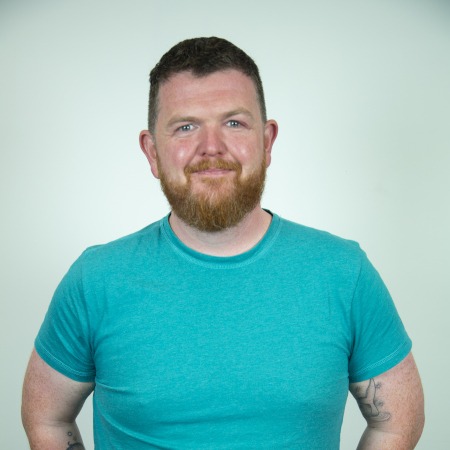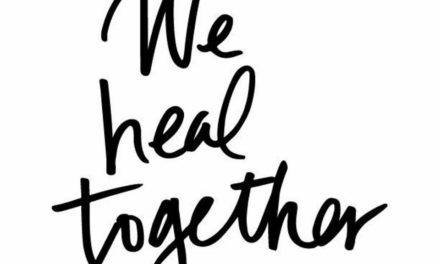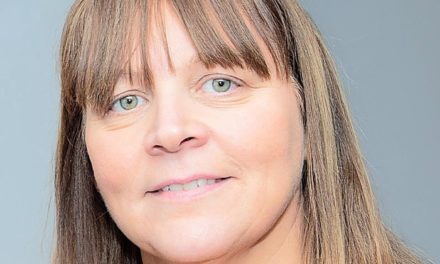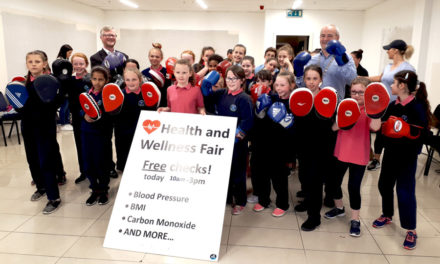Society on the whole tends to view older people as non-sexual beings. Inaccurate as that may be, it is nothing new. However, it can have a particularly detrimental effect on the healthcare needs of those in the LGBT+ community.
Since 2018, a course for health and social care professionals has been helping to make healthcare settings more welcoming.
Run by LGBT Ireland, the national support organisation for LGBT+ people, the LGBT Champions Programme aims to help older members of the community feel more comfortable accessing health and social care services.
James O’Hagan, LGBT Champions training programme co-ordinator, explained: “We worked with the likes of Alone, Age and Opportunity – organisations that provide supports to older people to add a weight to our work in that space.
“We developed a training programme and started rolling it out to older people’s services, targeting the more frontline services initially, the ones where people would arrive in the greatest crisis.
“We found a population that wasn’t really being considered, not out of any malice, it was just purely that older people aren’t really seen as having a sexuality. So when your sexuality is different from the mainstream, it’s a step to even consider you as having an interest in sex or sexuality from the beginning,” he said.
The programme began with a one-day workshop that allowed participants to learn about the experiences and preferences of older members of the LGBT+ community, how they would like to be treated, and the importance of understanding their identity.
“Many older members of our community had to fight a very hard fight to be who they are, and coming out is something that gets harder and harder when you are in crisis and feeling vulnerable,” continued James.
“We would see people who had been out and proud their entire life. But if they have a cancer diagnosis, or some illness that’s going to need prolonged intimate homecare, they’ll be concerned whether the person assigned to give that care is going to be accepting of their identity.”
He told of one older man he knew of who – before the public heatlh nurse would call – went around the house taking down any sign that he may be in the LGBT community. “When you’re in that position that you need that sort of intimate homecare, the last thing you should be worried about is who’s going to come into your home and take against a picture of a flag.”
During Covid-19 lockdowns, LGBT Ireland reached out to older members of the community through social media to provide support and companionship. This helped the organisation to connect with 400 older LGBT+ people who previously were unaware of any LGBT+ supports or services available to them.
LGBT Ireland now works with a network of approximately 300 LGBT Champions working in services that older people tend to access. Once they have completed the training, they create an action plan of how they can start implementing changes in their own services. After three months, they provide feedback to LGBT Ireland about what measures are working well, and what areas they may need additional support with.
James said the response from older members of the LGBT+ community has been “incredibly positive”. “So many of them mentioned walking into a space and seeing a little rainbow icon put up somewhere, the sense of speaking to someone who has a sense of your identity. Or who knows that your identity has nothing to do with what you’re there to speak to them about – perhaps you’ve broken a toe – but you feel fully comfortable being yourself. You’re not concerned with having to hold anything back; if you’re talking about your partner or husband or wife, you’re going to be respected for who you are. That has made an enormous difference to the older people in particular, older people who live more rurally.
“If you’re based in Dublin you’re most likely linked in with the LGBT+ community. You have spaces, all these supports that exists, massive Pride parades, gay couples walking around holding hands – you have that positive reaffirming of your identity everywhere you go. When you go a bit more rural, it’s less visible.
“So having these trained professionals who are indicating their inclusiveness is really important. It is all about that sense of ‘I can relax. I know this is a service I can use, this is someone I know I can rely on’.”
While James says Ireland is “a very inclusive country”, sometimes there is a need to make that welcome more visible. “It’s understanding these nuances, understanding why a person who grew up in an Ireland of the 70s, 80s or 90s might need that additional sign of safety before they feel comfortable to share.
“Research shows that where healthcare and social settings haven’t historically been visibly inclusive, LGBT+ people do have worse health outcomes because they’re less likely to access them, and when they do it’s at a time of acute crisis. They’re also less likely to assert their needs in those places, so you’ll have trans people who will be misgendered for example,” continued James.
“A trans woman in Cork was in an accident on her farm. It was early in the morning so it was before she’d had an opportunity to put on her makeup and jewellery. She hadn’t put on her gender armour that told people ‘This is who I am’, and she chose not to contact an ambulance. She ended up for a number of days living with a very serious injury because she felt as if she was going to be seen as something other than she was, and wasn’t going to be understood, and that her identity wouldn’t be taken seriously.”
He says that this is what the LGBT Champions Programme aims to address: “It’s that split second decision when you have an accident – before you get to the logical point of ‘I’m going to call for help now’, something sticks in there and says ‘Oh God are you really going to put yourself in this perceived danger?’.
“It’s about breaking down those barriers so the older people know the people helping them understand their identity and won’t see it as a big deal. They will just treat them as they find them and will respect them as who they are.”
More info: https://lgbt.ie/





